Premium Only Content
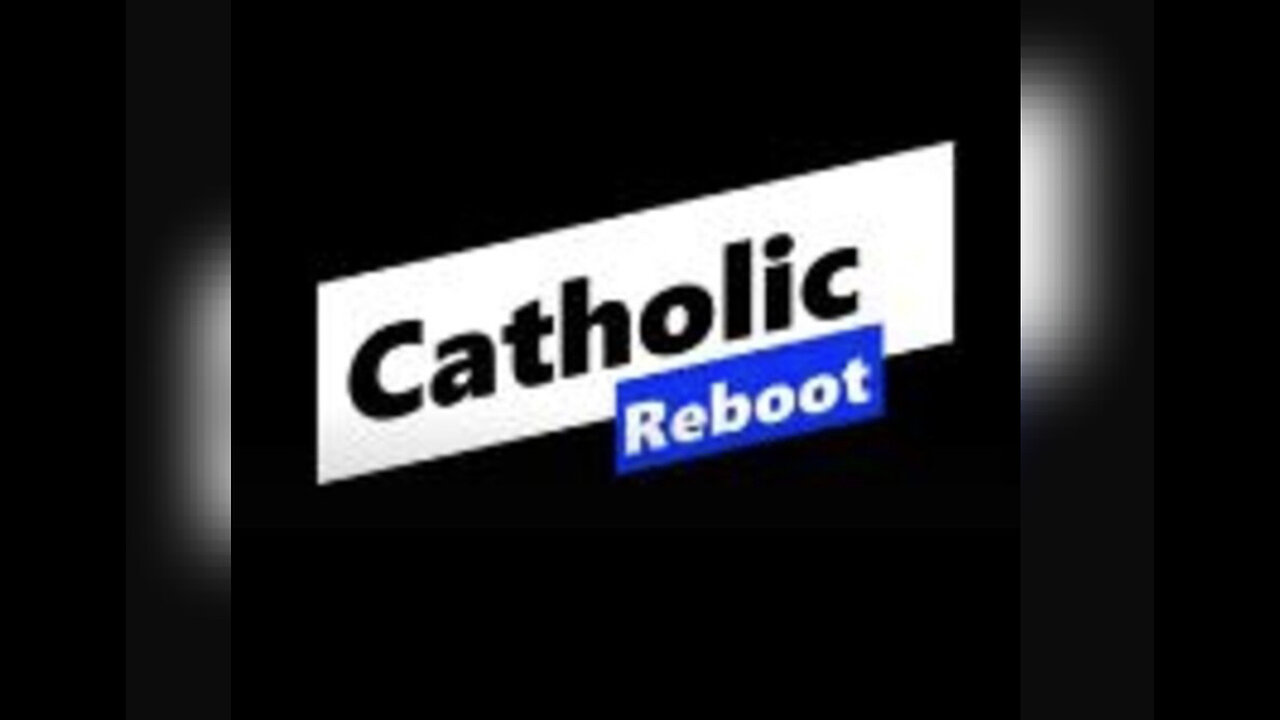
Episode 3088: From Christ-Centered to Man-Centered by Nancy
From Christ-Centered to Man-Centered: How We Fell into Humanism
Welcome back to Catholic Reboot and I am your host Nancy. Thank you, as always, to Walt for giving me the opportunity to explore this topic - which is our Holy Catholic Faith in its fullness - uncompromised, unfiltered, and unapologetically centered on Christ.
Before we begin, let’s start as we always do, with a prayer Opening Prayer
In the Name of the Father, and of the Son, and of the Holy Ghost. Amen.
Merciful Lord Jesus,
You are the Alpha and the Omega, the Beginning and the End. But in this age of confusion, we have traded Your eternal light for the flickering candle of human pride. We have bowed before the idols of progress, pleasure, and self-fulfillment, while neglecting the altar of sacrifice and the throne of Your majesty.
Most Holy Virgin Mary,
Seat of Wisdom and Mother of God, you who bore the Divine Word in your womb and remained hidden in humility, intercede for us. Help us to rediscover the beauty of self-denial, the strength of redemptive suffering, and the joy of living wholly for your Son.
For His greater glory, for the salvation of souls, and for the restoration of Holy Mother Church, we pray.
Amen.
In the Name of the Father, and of the Son, and of the Holy Ghost. Amen.
Let’s delve into this topic by asking the question that few Catholics even think to ask anymore:
“Are we truly living in Christ? Or have we been deceived into living as though man is the center of the universe?”
The Christocentric View of Reality
The Catholic Faith - authentic, traditional, and apostolic is inherently Christocentric. Everything, that is, creation, salvation history, morality, and eternal destiny is ordered around Christ.
As St. Paul says in Colossians 1:16–17:
“For in Him were all things created in heaven and on earth… all things were created by Him and in Him. And He is before all, and by Him all things consist.”
This means that the entire cosmos, your soul, your sufferings, your work, your family is only properly understood when seen through the mystery of Christ.
This is why St. Paul also says in Galatians 2:20:
“I live, now not I, but Christ liveth in me.”
This was the foundation of Christendom. Every saint, every martyr, every mystic, and every monastic order began with the principle:
God is the end of man. Not pleasure. Not comfort. Not man himself.
The Rise of Humanism – From God to Man
So, how did we go from that glorious, vertical vision to today’s man-centered chaos?
The descent can be traced through several cultural and theological revolutions.
1. The Renaissance & Secular Humanism
The Renaissance began by recovering classical knowledge, but it gradually shifted the focus from God to man.
Artists, philosophers, and scholars celebrated the capabilities of human reason and achievement at first under God, but eventually in place of God.
This produced Secular Humanism, a worldview that elevates man as autonomous, rational, and self-sufficient.
2. The Protestant Reformation
When Martin Luther rejected the authority of the Church and the magisterium, each man became his own pope.
Subjective interpretation of Scripture replaced Sacred Tradition. What followed was doctrinal chaos, disunity, and a massive blow to the unity of Christendom.
St. Francis de Sales clearly critiqued Protestantism in his writings saying that Protestantism is the religion of self-will. (self-will is defined as willful adherence to one’s own desires or ideas) He would highlight the dangers of individualism and subjective interpretation of the Bible and is said to have argued that relying solely on one’s own interpretation could lead to division and error.
Man’s conscience was enthroned even when it contradicted the divine order. In other words, man put his humanity above the will of God.
3. The Enlightenment
The so-called “Age of Reason” declared that human reason alone was sufficient to guide man. Religion was seen as primitive.
The supernatural? Dismissed. Revelation? Disregarded. Christ? Reduced to a moral teacher.
Voltaire, Rousseau, and other Enlightenment thinkers rejected Christ's kingship and replaced it with the sovereignty of man.
Pope Leo XIII condemned this spirit in Humanum Genus, writing:
“The fundamental doctrine of the naturalists… is that human nature and human reason ought to be the chief guide and sovereign in all things.”
The French Revolution and the Fall of Christendom
The logical fruit of Enlightenment thought was the French Revolution. Crosses were torn down. Churches were desecrated. The calendar was reset to Year One as if Christ never existed.
The slogan?
“Liberty, Equality, Fraternity” but without God.
Statues of “Reason” replaced statues of the Virgin Mary. The altar of sacrifice was replaced with the altar of man.
This was not just political, it was theological.
The Revolution enthroned man and dethroned Christ.
Modernism – The Synthesis of All Heresies
In the 20th century, Pope St. Pius X warned of the greatest threat of all: Modernism.
In Pascendi Dominici Gregis (1907), he called Modernism:
“The synthesis of all heresies.”
Modernism teaches that religion is not divine, it is a product of man’s feelings, his historical context, and social evolution.
In other words:
“God didn’t reveal the truth, we invented religion based on our needs.”
Under Modernism, doctrine can change, because truth itself evolves. This heresy puts man’s experience over God’s revelation. This ideology infected seminaries, universities, and clergy. It led to relativism, the breakdown of tradition, and the collapse of the supernatural worldview.
Vatican II and the Humanistic Turn Within the Church
Let’s be honest. While the documents of Vatican II are open to interpretation, the “spirit of the Council” unleashed a wave of humanism within the Church herself.
● The altar was turned toward the people.
● The priest became a “presider” over a community meal, not a mediator of sacrifice.
● The emphasis shifted from worship of God to celebration of man.
Pope Benedict XVI referred to this as the "anthropocentric turn" where liturgy, catechesis, and pastoral care revolve around the needs of man rather than the glory of God.
This shift devastated vocations, gutted liturgical reverence, and made Catholicism indistinguishable from secular humanitarianism.
Even the architecture changed, tabernacles removed from sight, communion received in the hand, Gregorian chant replaced with folk music.
We traded the eternal for the ephemeral.
The Fruits of Humanism
What happens when man is at the center? Let's look at the results.
● Truth is relative.
● Authority is questioned.
● Mass becomes a performance.
● Sacraments are reduced to symbols.
● The Church becomes a social service agency.
● And the Cross becomes meaningless.
St. Augustine warned us:
“Two loves built two cities. The love of God unto contempt of self built the City of God. The love of self unto contempt of God built the City of Man.”
We are living in the City of Man.
How Do We Return to Christocentrism?
So how do we recover the Christ-centered vision?
1. Restore the Sacred or re-educate
We must return to reverent, traditional worship that exalts God particularly the Traditional Latin Mass, which emphasizes transcendence, sacrifice, and mystery.
As Pope Benedict XVI wrote:
“The Church stands and falls with the liturgy.”
Or for some of us it is a re-education process. There is a resurgence of the traditional Catholic faith and now, even more with the election of a new pope. As I heard in a recent podcast - despite the fact that it is 2025, the world was watching; looking for the smoke, keeping their eyes riveted on that loggia, that balcony - believers and non-believers alike. If that doesn’t say there is hope, I don’t know what does.
2. Form Our Minds in Truth
Catechesis must be grounded in the timeless teachings of the Church, not modern psychology or politics.
We must study the Catechism of the Council of Trent, Sacred Scripture, and the Doctors of the Church, especially St. Thomas Aquinas.
3. Embrace Redemptive Suffering
Man-centered religion avoids the Cross. But traditional Catholicism teaches us to love the Cross.
St. John Vianney said:
“The Cross is the ladder to Heaven.”
We must unite our sufferings to Christ who is not a life coach, but a crucified King.
4. Live With Eternity in Mind
We are pilgrims. This world is passing.
Humanism says: You only live once.
Catholicism says: You live once, and then the judgment. (cf. Hebrews 9:27)
Everything must be oriented toward our eternal salvation.
Conclusion: Christ Must Reign
In the end, it comes down to this:
Will Christ reign in our lives or will we enthrone ourselves?
When we dethrone Christ, we don’t liberate man—we enslave him. Only in Christ is man made truly free. We are not man made but God made.
Let us reclaim the words of St. Paul in Philippians 1:21:
“For to me, to live is Christ, and to die is gain.”
Ending Prayer
In the name of the Father, and of the Son, and of the Holy Ghost. Amen.
Lord Jesus Christ,
King of kings and Lord of lords,
We repent of having placed ourselves at the center of life.
We beg Thee to reign in our hearts, our minds, our homes, and our Church.
Deliver us from the heresy of humanism,
And teach us to live, suffer, and die in Thee.
Grant us the grace to restore all things in Christ,
So that Thy name may be glorified on earth as it is in Heaven.
Amen.
Our Lady, Help of Christians – pray for us.
St. Thomas Aquinas – pray for us.
St. Pius X – pray for us.
St. Augustine – pray for us.
In the name of the Father, and of the Son, and of the Holy Ghost. Amen.
Thank you for listening and remember only in Christ do we find who we truly are.
May God keep you faithful and in the words of the Venerable Archbishop Fulton Sheen, “God love you.” Until next time.
-
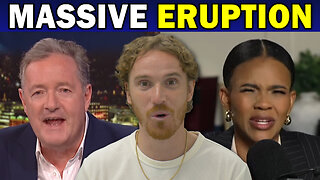 20:18
20:18
itsSeanDaniel
2 days agoCandace Owens CALLED OUT by Piers Morgan, So She FIRES BACK
18.1K14 -
 4:57:14
4:57:14
Akademiks
12 hours ago21 Savage Wants Young Thug, Wham & Gunna to SQUASH IT! Future Sneak Dissing? Jim Jones Pays 50 Cent?
391K13 -
 6:01:38
6:01:38
Right Side Broadcasting Network
2 days agoLIVE: President Trump to Deliver Remarks in Rocky Mount, NC - 12/19/25
148K62 -
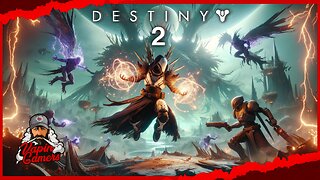 3:24:48
3:24:48
VapinGamers
11 hours ago $49.16 earnedDestiny 2 - Dungeons and Loot with Friends - !rumbot !music
113K1 -
 2:07:44
2:07:44
TimcastIRL
12 hours agoTrump's Secret Plan To Make Charlie Kirk VP, America Fest IN CIVIL WAR | Timcast IRL
240K228 -
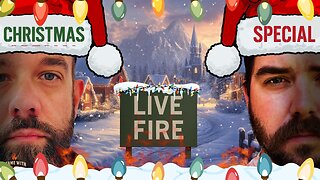 4:09:13
4:09:13
I_Came_With_Fire_Podcast
20 hours agoLive Fire: Christmas Special
57.7K9 -
 46:26
46:26
Sarah Westall
14 hours agoWhat’s Behind the Silver Surge? Large Institutions Cashing In w/ Andy Schectman
54.8K4 -
 6:42:10
6:42:10
Turning Point USA
19 hours agoLIVE NOW: AMFEST DAY 2 - VIVEK, JACK POSOBIEC, MEGYN KELLY, ALEX CLARK AND MORE…
1.37M196 -
 1:14:37
1:14:37
Flyover Conservatives
1 day agoHow to Win 2026 Before It Starts — Clay Clark’s Goal-Setting Blueprint | FOC Show
54.7K1 -
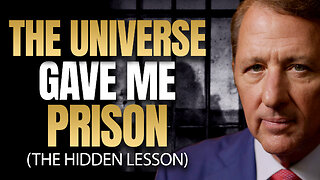 12:52
12:52
The Kevin Trudeau Show Limitless
2 days agoBeyond Good And Bad: The Hidden Reality Code
100K22